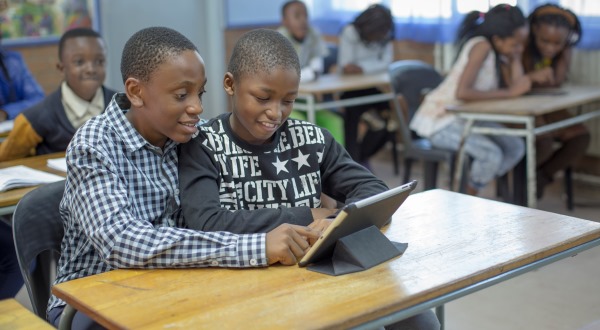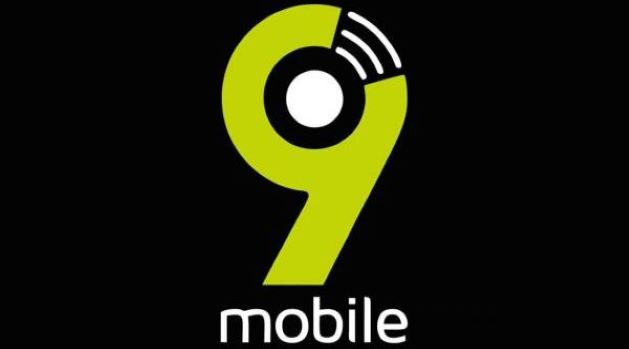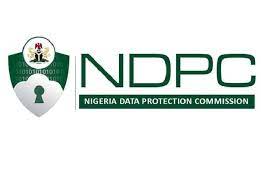Telecom
Ericsson says Connecting Schools has the Potential to Boost GDP by up to 20 percent in the Least Connected Nations

An Economist Intelligence Unit (EIU) report sponsored by Ericsson has found that nations with low broadband connectivity have the potential to realize an increase in GDP by up to 20 percent by connecting schools to the internet.

A well-educated workforce is more likely to be innovative and foster ground-breaking ideas, leading to economic development and job creation. EIU analysis shows that for every 10 percent increase in school connectivity in a country, GDP per capita could increase by 1.1 percent.
In the context of the West African country of Niger, the report finds that improvements in school connectivity to Finnish levels could increase GDP per capita by almost 20 percent – from USD 550 per person in the baseline, to USD 660 per person by 2025.
The report focuses on four key actions to make a change:
- Collaboration is key: A holistic, public/private partnership strategy is needed to coordinate efforts with stakeholders to overcome barriers to school connectivity.
- Accessibility and affordability: Building infrastructure to enable access to the internet is a starting point. Quality of connection and cost are important factors as well.
- Embedding internet and digital tools into education: Once access to school connectivity is achieved, it must be embedded into the curriculum. Teachers must be trained to integrate technology into everyday learning.
- Protecting children online: School connectivity provides opportunities for children. Additional steps must be taken to ensure healthy and protected online learning environments. Internet usage must be properly managed to ensure safe and secure use..
The report also recommends that public, private and NGO sector leaders around the world can make a dramatic impact towards bridging the digital divide by joining forces to make internet connectivity a global reality for school children of all ages.
As a result, Ericsson today appeals to these players to get behind the efforts of Giga (a school connectivity initiative founded by UNICEF and the International Telecommunication Union) through actions such as: funding, data sharing, technological expertise and reimagining sustainable business models for connectivity. Ericsson has committed its efforts through a three-year partnership with UNICEF to help map the current school connectivity gap across 35 countries.
The Ericsson-backed EIU report – Connecting Learners: Narrowing the Educational Divide – has reinforced the company’s belief that the ambitious goal of Giga, to connect all schools and their surrounding communities by 2030 is achievable.
Heather Johnson, Vice President of Sustainability and Corporate Responsibility, Ericsson, says: “When Giga was announced, we immediately understood the positive impact it could deliver – bridging the digital divide between and within countries, to give children the world over the opportunity of bright and rewarding futures.”
She adds: “The report makes it clear that partnership between business leaders, public sector leaders and NGOs can take effective action to address this issue and significantly impact lives. Every player in these sectors, no matter how big or small, can make a difference. We encourage stakeholders to read the report and more importantly join the Giga initiative to help realize this important goal.”
Charlotte Petri-Gornitzka, UNICEF Deputy Executive Director, Partnerships, says: “Together, we’re mapping schools around the world to identify connectivity gaps in communities. It’s key that we collaborate across sectors to connect schools and provide quality digital learning, so every child and young person can leapfrog to a brighter future.”
The report
The EIU report shows how school connectivity can lead to improved educational outcomes and enhanced career opportunities for children. Resulting in higher economic activity and community growth.
The report finds that these individual-level benefits for children have a snowball effect leading to higher incomes, better health, and improved overall wellbeing. The benefits can extend beyond children, supporting wider community development and economic growth.
Other potential school connectivity benefits highlighted by the report include:
- Increasing quality of education
- Creating a more productive workforce that fosters innovation and ground-breaking ideas
- Job creation
- Community development
- Driving economic growth and development
Telecom
Telcos Mull Introduction of Different Tariff Plans for Different States

Telecommunications operators in Nigeria are considering shifting from the current national tariff structure to a regional tariff regime that accounts for state-specific operational challenges.

They say this is because the challenges and costs of running their businesses vary significantly from state to state.
Currently, phone companies in Nigeria have a single national tariff for their services, meaning everyone pays the same amount no matter where they live.
However, the telcos argue that this system doesn’t account for the fact that some states have higher operating costs due to issues like attacks on their equipment and multiple taxes.
This proposal was discussed at the 7th edition of the Policy Implementation Assisted Forum (PIAFo) in Lagos, where industry leaders highlighted the need for a pricing model that reflects the ease—or difficulty—of doing business in each state.
Gbenga Adebayo, chairman, Association of Licensed Telecommunications Operators of Nigeria (ALTON), specifically pointed out that the high cost of doing business in some states is a major concern and increases their expenses. He suggested that if negotiating with certain states to reduce these costs is impossible, then the added expense of operating there should be reflected in the service prices in those areas.
“We may have to reconsider the issue of our national tariffs and look at regional tariffs. If you are aware that the cost of doing business is high in a particular state and it’s impossible to negotiate with them, factor the cost of deployment in those areas into the cost of providing services,” he said.
Tony Emoekpere, president, Association of Telecommunications Companies of Nigeria (ATCON), agreed that the current national tariff is unfair because operational costs are not the same across the country.
He believes that states that make it easier for telecom companies to operate should be rewarded, while those that create difficulties should see higher service costs.
Telecom
9mobile Denies Shutdown Rumours, Promises Improved Services

9mobile, telecommunications operator, has described as untrue the rumors suggesting that it has shut down its operations.

according to the telcos, these claims are entirely baseless and aimed at causing unnecessary panic among our valued subscribers, the mobile operator said in a statement.
“We understand that some customers have recently faced challenges, particularly with Mobile Number Portability (MNP), a service that enables seamless network switching.
“We want to clarify that 9mobile has never restricted customers from porting to other networks. We remain fully compliant with industry regulations and committed to delivering fair, transparent, and customer-focused services.
“While there have been temporary technical challenges affecting MNP, these issues have now been largely resolved. Some minor delays may still occur due to ongoing system optimizations, but we are actively working to ensure a smoother experience for all users.
“As a proudly Nigerian brand, we embody the resilient spirit of our people and remain steadfast in our commitment to overcoming challenges. We acknowledge the temporary service disruptions some customers may have experienced in different locations.
“However, we assure you that these disruptions are part of a broader transformation effort aimed at modernizing our infrastructure and improving overall service quality.
“Our ongoing investments in network upgrades and service expansion will soon yield significant improvements, ensuring reliable connectivity for individuals, businesses, and communities.
“We sincerely appreciate the patience and loyalty of our subscribers during this transition. While challenges exist, we are making significant progress and are confident that brighter days are ahead. We remain dedicated to providing exceptional service and keeping you connected to limitless opportunities”.
Telecom
TikTok and Truecaller Face NDPC Investigation Amid Data Protection Concerns

Nigeria Data Protection Commission (NDPC) has initiated an investigation into the data processing practices of Tiktok and Truecaller, following growing concerns about potential privacy violations.

Dr. Vincent Olatunji, the Chief Executive Officer of the NDPC, made the announcement today during a press conference in Abuja, where he also revealed the issuance of the Nigeria Data Protection Act – General Application and implementation directive (NDPC Act – GAID), 2025.
Dr Olatunji stated that the commission’s primary concern is how these platforms manage Nigerian users’ personal data, including potential breaches of consent, data sharing with third parties, and overall compliance with the Nigeria Data Protection Act (NDPA), 2023. He confirmed that the NDPC is actively investigating Tiktok and Truecaller’s data processing activities to ensure they comply with Nigeria’s data protection laws.
“The goal is to safeguard the privacy rights of Nigerians and hold organizations accountable for how they collect, store, and use personal data,” he added.
This investigation comes amid increasing scrutiny of global tech companies regarding data privacy, especially concerning how personal information is processed, stored, and transmitted beyond national borders.
The NDPC act – GAID, 2025, issued today, provides a detailed framework for implementing Nigeria’s data protection law, outlining compliance guidelines, enforcement mechanisms, and obligations for both public and private organizations.
Dr Olatunji emphasized that the directive aims to strengthen Nigeria’s digital economy by fostering trust in data governance while ensuring individuals’ rights to privacy are respected in accordance with international best practices.
He reiterated that companies operating in Nigeria must comply with the country’s data protection regulations or face regulatory actions, including fines and potential restrictions.
The NDPC has urged the public to report any data privacy violations and reaffirmed its commitment to transparency and due process in its investigations.
The commission noted that reporting data breaches has become more accessible through dedicated channels on its official website.

 General News2 days ago
General News2 days agoNigeria, Kenya among Nations Running out of HIV Drugs – WHO

 News2 days ago
News2 days agoNAFDAC Destroys over N1 Trillion Fake Drugs in Anambra

 Telecom2 days ago
Telecom2 days ago9mobile Denies Shutdown Rumours, Promises Improved Services

 Telecom2 days ago
Telecom2 days agoTikTok and Truecaller Face NDPC Investigation Amid Data Protection Concerns

 E-Business2 days ago
E-Business2 days agoVisa to Establish Data Centre in Nigeria to ‘Boost Digital Economy’

 E-Financial2 days ago
E-Financial2 days agoNigeria Still Open Crypto Business despite $80Bn Lawsuit against Binance – FG

 News2 days ago
News2 days agoBolt Shares the Spirit of Ramadan with Kano Drivers-Partners

 General News2 days ago
General News2 days agoNigeria to Launch $40 Million Fund for Tech Startups



























